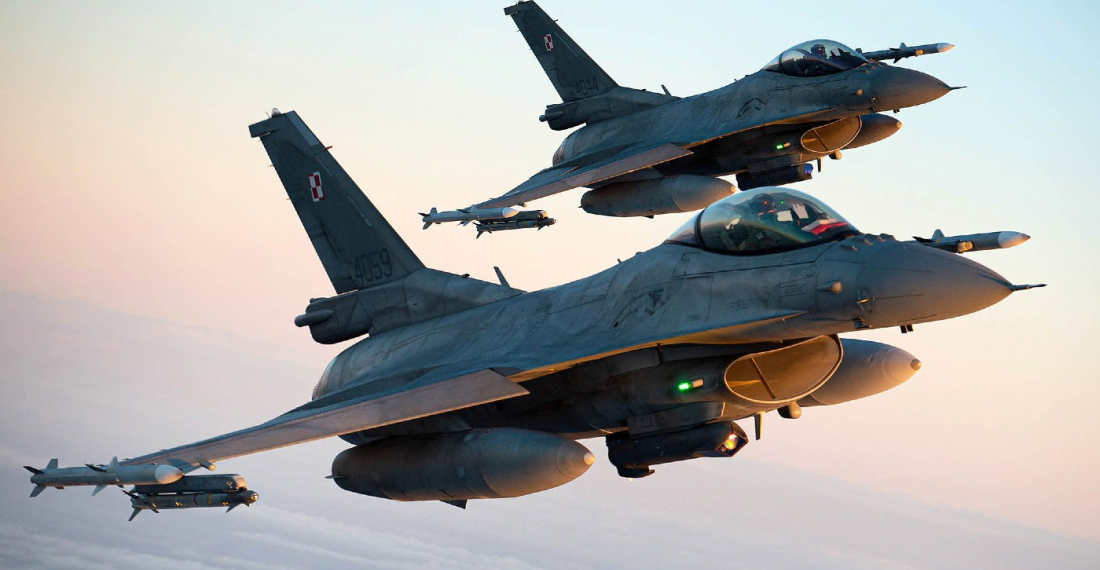The UK and The Netherlands have agreed to form an "international coalition" to assist Ukraine in acquiring F-16 fighter jets, the UK Government announced in a statement released on Tuesday (16 May).
Meeting on the sidelines of the Council of Europe summit in Reykjavik, about which you can read more here, prime ministers Rishi Sunak and Mark Rutte "agreed they would work to build international coalition to provide Ukraine with combat air capabilities, supporting with everything from training to procuring F16 jets", the statement said.
"The [British] Prime Minister reiterated his belief that Ukraine’s rightful place is in NATO and the leaders agreed on the importance of allies providing long-term security assistance to Ukraine to guarantee they can deter against future attacks," the statement added.
This development followed Ukrainian President Volodymyr Zelensky's suggestion that Kyiv could expect to receive F-16 fighter jets soon, expressing optimism about crucial decisions being made with the support of the UK.
On 15 May in London, Zelensky and Sunak engaged in a two-hour discussion during the former's second visit to the UK since the beginning of Russia's full-scale invasion. Following the meeting, in a joint press conference, Sunak acknowledged that providing fighter jets to Ukraine was a complex matter but affirmed that London would play a pivotal role as part of the coalition countries, offering support to Kyiv.
On his previous visit to the UK on 8 February, rounding off his address to the UK Parliament, President Zelensky thanked the country in advance for "powerful English planes". You can read more about his visit here.
It is probable that any coalition of F-16 donors would rely on the endorsement of the United States, however, with Washington presently ruling out the immediate dispatch of F-16 jets to Ukraine, with US officials estimating that training and delivery would require approximately 18 months.






